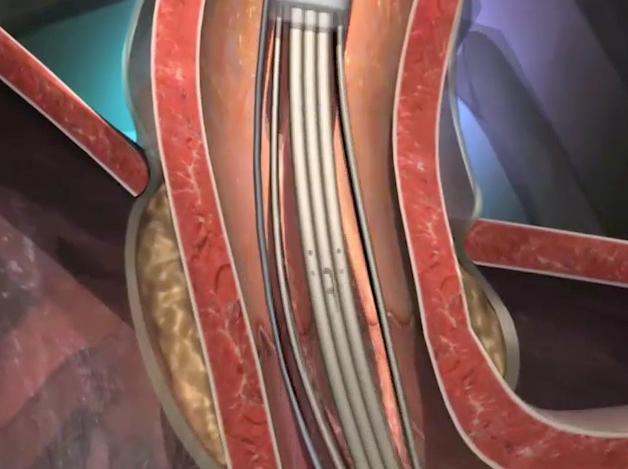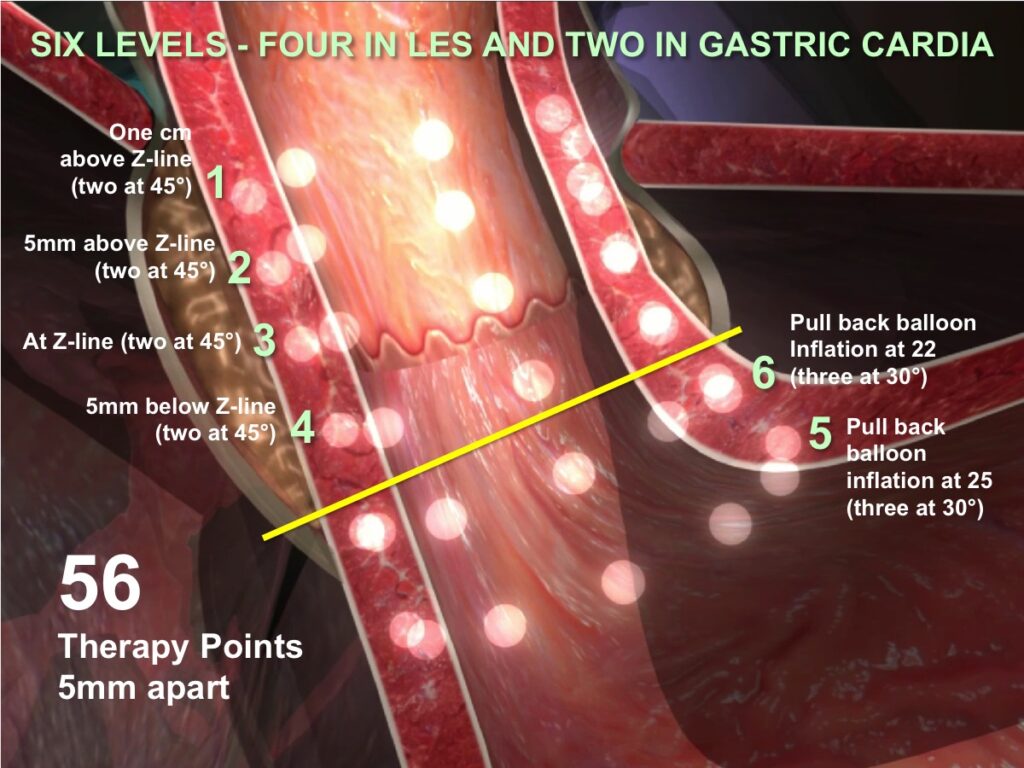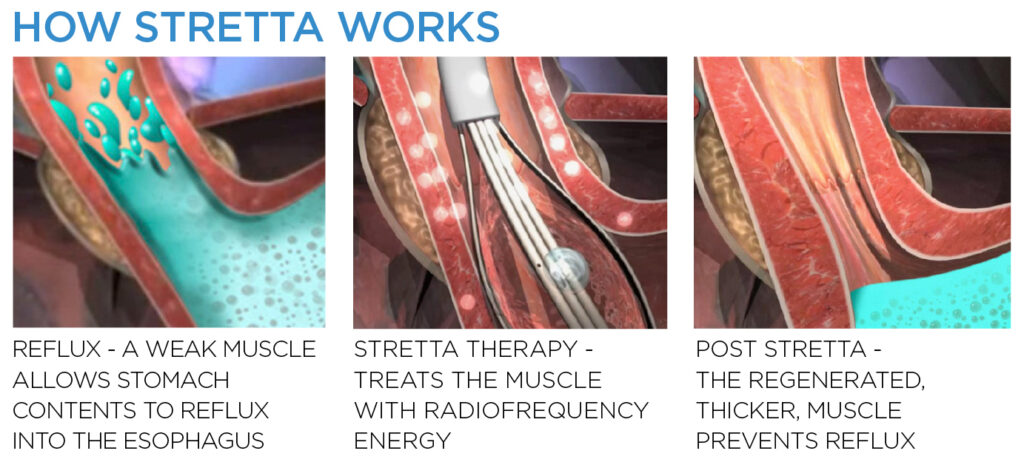General Surgery
Surgical Services
The surgery department encompasses the entire surgical experience, beginning with the primary care office, pre-admission screening, same day surgery, the operating suites and the post anesthesia care area. Board Certified surgeons, Certified Registered Nurse Anesthetists, Physician Assistants, Nurse Practitioners and nursing staff make up the dedicated team of professionals that are prepared to exceed your expectations!
Experienced Board-Certified surgeons offer a multitude of high quality services including but not limited to: upper and lower endoscopy procedures including non-invasive capsule endoscopy, major laparoscopic and open abdominal procedures, breast cancer detection procedures, cesarean sections and all surgical office procedures.
In addition to general surgery, the following areas of surgery are also offered: gynecology, ophthalmology, orthopedics, and urology.
Related to breast cancer detection, advanced technology is available at NMMC in the form of Sentinel Node Biopsies. When found and treated early, breast cancer is often curable. One of the first sites of breast cancer spread is to the lymph nodes located in the armpit. These are called sentinel lymph nodes. Lymph nodes are part of a network of vessels called the lymphatic system that carries a clear fluid called lymph. Using special noninvasive equipment called a gamma probe, the surgeon is able to detect whether or not the cancer has spread to the lymph nodes. Knowing if there is any involvement in the lymph nodes can reduce the chance that more extensive surgery will be needed, thus reducing the incidence of complications such as Lymphedema.
To learn more about NMMC’s general surgery services, call 207-834-3060. If you have had a procedure and have questions, learn more from our brochure below.
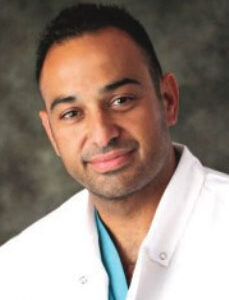
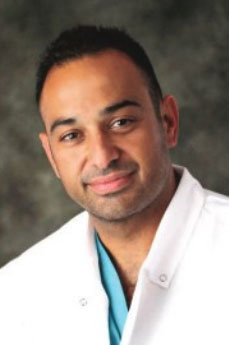
Dr. Anoushfar moved to the county from New Mexico where he owns and operated a cattle ranch. When he is not in the Operating Room you can find him at the gym, doing Brazilian Jiu Jitsu or enjoying his family.
Gastrointestinal Health
Gastroesophageal reflux disease is a chronic condition where stomach contents reflux up from the stomach into the esophagus through the lower esophageal sphincter. Normally, these muscles act as a barrier to reflux, letting food pass down into the stomach but not back up into the esophagus. When this muscle is weak, patients may experience symptoms of gastroesophageal reflux such as:
- Persistent heartburn
- Regurgitation
- Chest Pain
- Difficulty swallowing
- Asthma/chronic cough
- Laryngitis
Up to 30% of patients who suffer from heartburn and reflux do not get relief from medication. Many have concerns about taking anti-reflux medication long-term and want to avoid surgery.
Left untreated, gastroesophageal reflux causes irritation of the esophagus that can result in inflammation, ulceration and pain. If these conditions continue, there may be a risk of Barrett’s esophagus or esophageal cancer.
How is gastroesophageal reflux treated?
- Lifestyle changes
- Medications
- Non-surgical endoscopic therapy (Stretta)
- Anti-reflux surgery
What is the Alternative Solution?
Stretta -Reflux treatment without medication or surgery
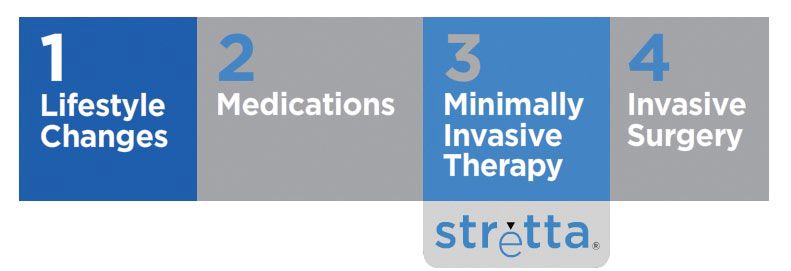
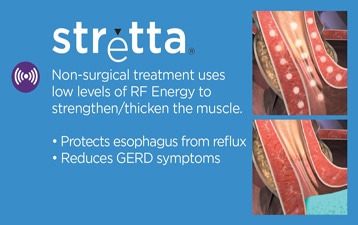
Stretta is a different kind of treatment for gastroesophageal reflux. Stretta treats the underlying cause which is a weak muscle between the stomach and esophagus. This non-surgical procedure significantly reduces symptoms and can help a majority of patients reduce or stop taking medications completely.
Talk to your healthcare provider to see if Stretta is right for you or call 207-834-3060 to learn more
Endoscopy
At NMMC’s Center for Gastrointestinal Health, patients have access to a variety of services such as: upper gastrointestinal endoscopy, colonoscopy, and diagnosis and non-surgical treatment of gastric reflux.
Endoscopy is a procedure that lets your doctor look inside your body. It uses an instrument called an endoscope, or scope for short. Scopes have a tiny camera attached to a long, thin tube. The doctor moves it through a body passageway or opening to see inside an organ. Sometimes scopes are used for procedures, such as removing polyps from the colon. (Source: Medlineplus.gov -endoscopy) To learn more about when this type of procedure is used and the newer types of endoscopy procedures, visit the American Cancer Society.
In the area of gastroenterology, technology is now available to photograph inside the human body just by taking a pill. The specialized procedure, called capsule endoscopy, or pill cam for short, is currently available at NMMC. The test is performed by Board Certified General Surgeons. The procedure is the test of choice for finding a source of bleeding in the small intestine if the standard exam, called an endoscopy, fails to do so. The pill cam assists the surgeon to evaluate the small intestine, located between the stomach and the colon, which cannot be reached by traditional endoscopic procedures such as colonoscopy or gastroscopy.
Endoscopy -what to expect
Know the facts about colorectal cancer which is the second leading cause of cancer deaths in America. To put this in perspective, closer to home, 300 Mainers will die from colorectal cancer this year. Of this number, 90% of these would have been preventable through early screening. Check out the link below to learn more and take the quiz to find out what you don’t know about colorectal cancer!
Procedure Information Center

Find a Provider

